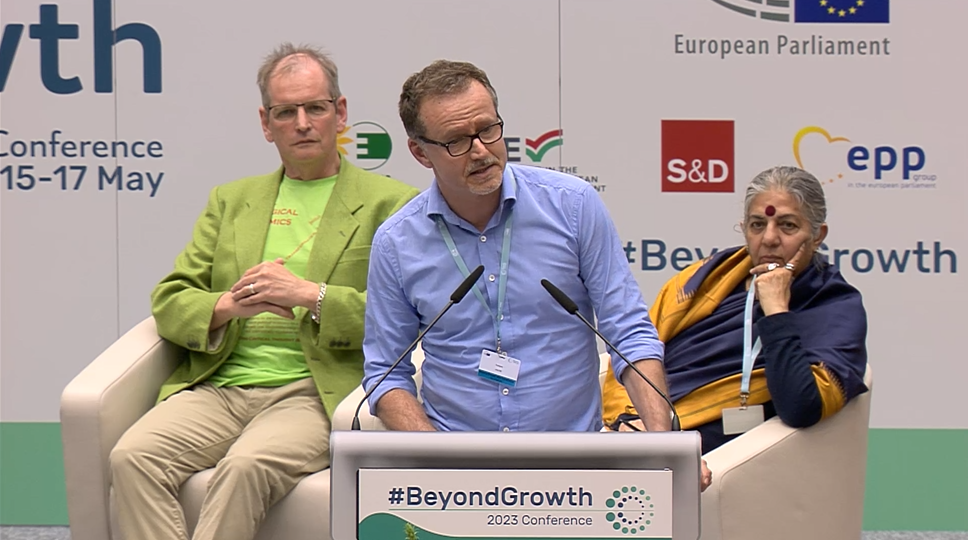Biodiversity markets are about to be implemented on a large scale but will require strong regulation and a fundamental shift in the economy to avoid “legitimising damage”, according to panellists at the Beyond Growth 2023 conference last week.
In the session ‘Repairing and restoring Nature in a beyond growth perspective: is putting a price on biodiversity the right way to go?’, chair Marie Toussaint asked panellists to discuss the growing role of monetary valuations and market-based solutions and biocredits in national, European and international biodiversity frameworks.
Natural capital accounting is now implemented in the EU and many other countries, and new policy tools and market schemes aimed at protecting biodiversity are being put forward.
By definition offsetting does not aim at curbing destruction, Frederic Hache (pictured), director and co-founder of the Green Finance Observatory, and ex-investment banker said. It displaces destruction but does not reduce it.
Hache said biodiversity offsets are “plagued with environmental integrity issues” and said around two-thirds of projects currently fail.
“Offsetting is associated with conflict, human rights abuses and neocolonialism,” he added.
“What is truly needed is tighter regulatory… no new markets for nature are required, even if some private finance is required.”
Marco Lambertini, special envoy, WWF International, agreed tighter regulation is needed, but said functioning biodiversity markets are possible.
For them to work compensation on biodiversity would have to be like-for-like, projects would have to be localised and deliver the same level of compensation ecologically.
But he stressed they should not be a first port of call for companies just because they are cheaper than avoiding damage in the first place. “Offsets cannot be designed to legitimise damage,” he said.
Economist Clive Spash also delved into some of the practical challenges biodiversity markets might face.
“How are these things going to be valued?” he asked.
“When creating pseudo-markets you ask people what is the maximum amount they’d be willing to pay for things such as tigers and wetlands, etc…people can’t preference a tiger over a rat. You will end up with a selective extinction of unattractive species.”








